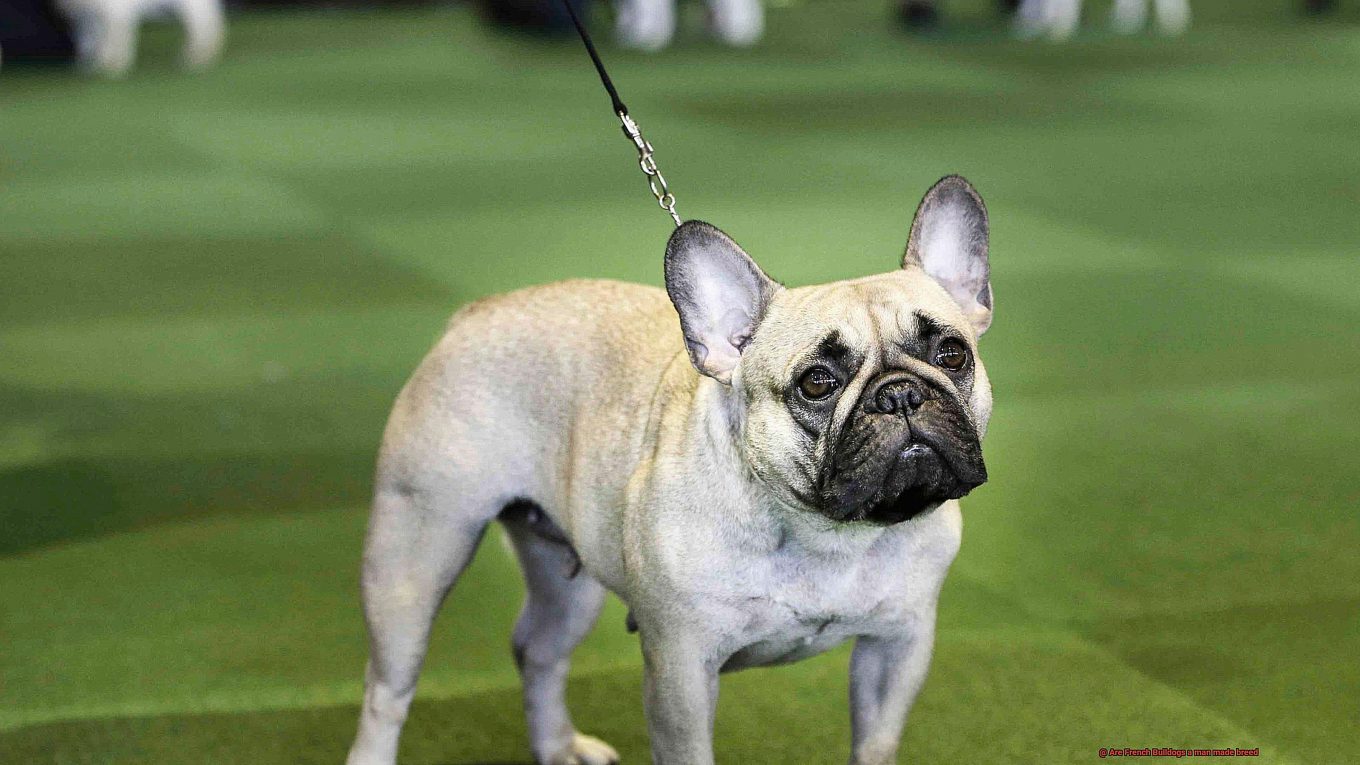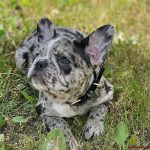Are French Bulldogs a man made breed?
Welcome to my blog post all about French Bulldogs – those captivating and endearing companions that have stolen the hearts of dog lovers everywhere. If you’ve ever wondered whether French Bulldogs are a man-made breed, then you’re in for a treat as we delve into their intriguing history.
Back in the mid-19th century, humans played a significant role in creating these adorable creatures. They were originally bred as a smaller version of the English Bulldog, which was quite the popular breed for bull-baiting at the time. French breeders had a different vision in mind – they wanted to develop a more petite and docile bulldog that would be perfect for city living.
To achieve this, breeders selectively mixed English Bulldogs with local terriers and pugs. Through careful breeding, they were able to create the distinctive appearance and delightful temperament that we now associate with French Bulldogs.
It wasn’t long before French Bulldogs caught the attention of affluent Americans and Europeans in the late 1800s. These little cuties became favorites among the upper class, particularly in cities like Paris and New York. Their charm, adaptability, and undeniable cuteness earned them the nickname “the Frenchie.”
Fast forward to today, and French Bulldogs continue to steal hearts all over the world. Whether you’re looking for a casual companion or exploring professional opportunities with these pups, there’s no denying their appeal.
On the casual side of things, Frenchies are adored for their friendly nature and ability to adapt effortlessly to various living environments. Whether you live in a small apartment or a spacious country house, a French Bulldog can make an incredible addition to your family. Plus, their moderate exercise needs fit perfectly into our fast-paced lifestyles.
But it doesn’t stop there. French Bulldogs have also found success in specialized fields due to their exceptional intelligence, trainability, and eagerness to please. They make excellent therapy dogs, providing comfort and support to those in need. Additionally, their compact size and gentle demeanor have made them popular choices for service and emotional support roles, assisting individuals with disabilities or mental health conditions.
And let’s not forget about their superstar status in the world of fashion and social media. French Bulldogs are true photogenic naturals, capturing the hearts of influencers and celebrities worldwide. With their expressive faces and quirky personalities, it’s no wonder they’ve amassed large followings on platforms like Instagram.
So, there you have it – French Bulldogs are indeed a man-made breed, carefully crafted by humans to bring joy
The History of French Bulldog Breeding
Contents
- 1 The History of French Bulldog Breeding
- 2 The Industrial Revolution and the Creation of the French Bulldog
- 3 Characteristics of the French Bulldog
- 4 Health Concerns of Man-Made Breeds
- 5 Responsible Breeding Practices for French Bulldogs
- 6 The Popularity of French Bulldogs Around the World
- 7 Prioritizing Health and Well-being in French Bulldogs
- 8 Conclusion
Today, we embark on a journey through the captivating history of French Bulldog breeding, tracing their origins from England to their current global popularity. Prepare yourself for an enlightening and entertaining exploration of this remarkable breed’s evolution.
The Origins: Lace Workers and Crossbreeding
In the 1800s, lace workers in England sought to create a smaller version of the popular English Bulldog. They crossed these sturdy Bulldogs with local terrier breeds, resulting in the birth of the Bouledogues Français, or French Bulldogs.
France: The True Birthplace of the Breed
As industrialization took hold, many lace workers migrated to France in search of work, bringing their beloved French Bulldogs with them. In the land of art and romance, these charming dogs quickly captured the hearts of the upper class, artists, writers, and even royalty. The breed flourished in France, earning its name and establishing its unique characteristics.
Selective Breeding for Distinctive Features
French Bulldog breeders in France focused on refining the breed’s traits through selective breeding. Their goal was to enhance features such as the Frenchie’s large round eyes, short muzzle, and compact body. By carefully selecting the best representatives for breeding purposes, breeders established a consistent standard for French Bulldogs.
Health Concerns: A Price for Perfection
Unfortunately, the selective breeding that resulted in the breed’s distinctive appearance also led to certain health issues. French Bulldogs are prone to respiratory problems due to their short muzzles and can suffer from heat exhaustion due to their compact bodies. It is vital for owners and breeders to be aware of these concerns and prioritize responsible breeding practices.
Conquering New Frontiers: The Journey to America
In the early 20th century, French Bulldogs crossed the Atlantic to the United States. American breeders embraced their unique charm and worked to establish their own bloodlines. In 1898, the American Kennel Club officially recognized the French Bulldog as a breed.
Global Popularity: A True Treasure Among Dog Breeds
With their distinctive appearance, pleasant temperament, and adaptability to various living situations, French Bulldogs have skyrocketed in popularity worldwide. Today, they are one of the most sought-after and adored dog breeds.
The Industrial Revolution and the Creation of the French Bulldog
The French Bulldog, a breed beloved by many for their adorable looks and charming personalities. But have you ever wondered how these delightful creatures came to be? Well, my fellow Frenchie enthusiasts, today we embark on a journey through time to explore how the Industrial Revolution played a pivotal role in the creation of the French Bulldog. Buckle up, it’s going to be a tail-wagging adventure.
The Urbanization Effect:
Picture this: it’s the late 18th century, and cities are bustling with activity as people flock from rural areas to urban centers. With urbanization came cramped living spaces and a need for smaller canine companions. Enter the French Bulldog. Their compact size and adaptability made them the perfect fit for city living, earning them the title of the ultimate urban pet.
From Working Dogs to Companions:
Gone were the days when dogs were solely bred for herding or hunting purposes. As factories sprouted and industries boomed, dogs transitioned into being cherished companions for the emerging middle class. This shift in function led to a demand for breeds that were not only aesthetically pleasing but also well-suited to indoor living – enter the French Bulldog with its charming demeanor and captivating looks.
Taming the Bulldog:
In England, during the early 19th century, a cruel bloodsport called bull-baiting involving Bulldogs was banned. With this ban came an opportunity for breeders to focus on developing Bulldogs with more gentle and amiable temperaments. Selective breeding resulted in French Bulldogs with friendly personalities, making them even more desirable as companions.
Crossbreeding Magic:
The quest to create a unique breed led breeders to experiment with crossbreeding Bulldogs with smaller terrier breeds. This crossbreeding reduced the size of the breed, giving birth to the compact and adorable French Bulldog we know and love today. But it wasn’t just about size – breeders also aimed to create a dog with the iconic bat-like ears that set French Bulldogs apart from their bulldog relatives.
The French Connection:
Across the English Channel in France, a parallel story was unfolding. Lace workers from Nottingham migrated to Normandy, bringing along their miniature Bulldogs. These pint-sized pups quickly captured the hearts of the French bourgeoisie, who further refined the breed by selectively breeding for specific traits like a distinctive head shape, bat ears, and a compact body.
Characteristics of the French Bulldog
If you’re a dog lover, chances are you’ve come across the French Bulldog at some point. With their small size and distinctive facial structure, these adorable pups have captured the hearts of many. But what exactly sets them apart from other breeds? Let’s take a closer look at the characteristics of the French Bulldog that make them so special.
Size: Small But Mighty
French Bulldogs are considered a small breed, typically weighing between 16-28 pounds and standing about 11-12 inches tall at the shoulder. Despite their small stature, they have a sturdy and muscular build that gives them a stocky appearance. Think of them as little powerhouses in a compact package.
Facial Structure: Unique and Expressive
One of the most striking features of French Bulldogs is their distinctive facial structure. They have a flat, pushed-in face with a short muzzle and an underbite. This unique trait not only gives them an adorable and expressive look but also contributes to certain health issues that are common in the breed, such as breathing difficulties and dental problems.
Coat: Low Maintenance and Stylish
French Bulldogs have a smooth and short coat that comes in various colors like brindle, fawn, white, cream, and pied. Their coat is low maintenance and requires minimal grooming. Unlike some breeds that leave hair all over your furniture, Frenchies shed moderately, making them suitable for individuals who prefer a dog with minimal shedding.
Temperament: Affectionate and Sociable
French Bulldogs are known for their affectionate and friendly nature. They enjoy spending time with their owners and are generally good with children and other pets. These social dogs thrive on companionship and love being part of the family. They’re not typically aggressive or protective, making them more suitable as family pets rather than guard dogs.
Playful and Comical Personalities
Despite their small size, French Bulldogs have a surprisingly sturdy and playful nature. They’re known for their comical antics and love to entertain their owners with their silly behavior. Whether it’s zooming around the house or rolling on their back for a belly rub, these pups know how to bring a smile to your face.
However, it’s important to note that due to their brachycephalic (flat-faced) structure, French Bulldogs are not as physically active as some other breeds. They may tire easily during strenuous exercise or in hot weather conditions. It’s essential to provide them with appropriate care and attention to ensure their health and well-being.
Health Concerns of Man-Made Breeds
However, it’s crucial to be aware of the health concerns associated with man-made breeds like French Bulldogs. In this article, we will delve into the common health issues that affect these unique breeds, offering insights and advice to help you ensure the well-being of your furry friend.
Brachycephalic Airway Syndrome:
French Bulldogs have a distinct flat face, which can lead to breathing difficulties. Their shortened airways make it harder for them to breathe properly, resulting in snoring, snorting, and wheezing. During hot weather or intense exercise, these symptoms can worsen. It’s important to provide a cool and well-ventilated environment for your Frenchie and avoid excessive physical exertion in extreme temperatures.
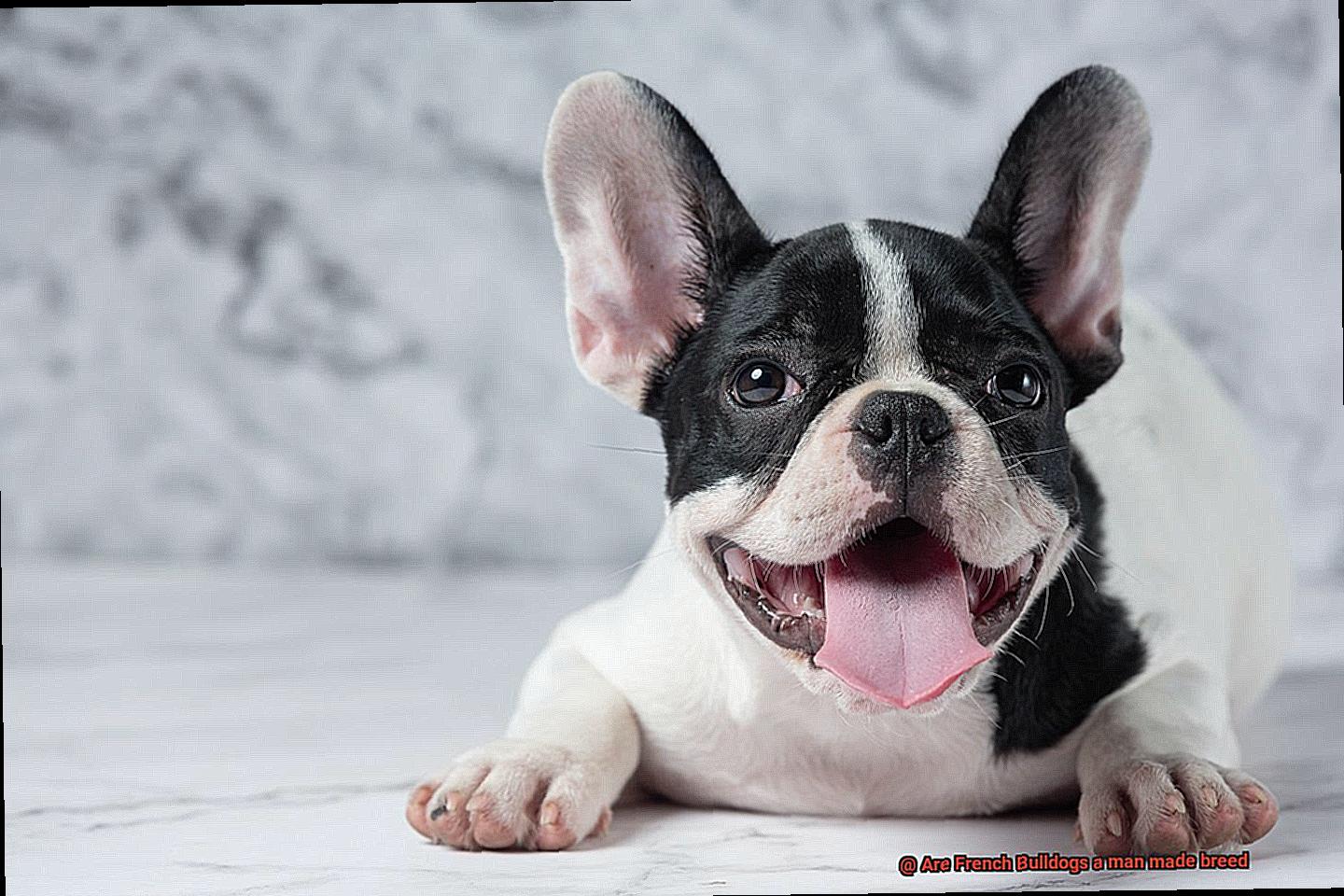
Eye Problems:
French Bulldogs are prone to various eye conditions, including cherry eye (prolapsed third eyelid), dry eye (insufficient tear production), and corneal ulcers. Regular eye check-ups with a veterinarian are essential to detect and treat these issues early on. Remember to keep their eyes clean and free from debris to minimize the risk of infections.
Skin Allergies and Dermatitis:
Due to their wrinkles and skin folds, French Bulldogs are more susceptible to skin allergies and dermatitis. These conditions can cause discomfort and lead to secondary infections if not properly managed. Regular grooming and cleaning of their skin folds are crucial in preventing irritation and keeping their skin healthy.
Obesity:
French Bulldogs have a tendency to gain weight easily, which can worsen their breathing difficulties and put strain on their joints. A balanced diet, portion control, and regular exercise are essential in maintaining a healthy weight for your Frenchie. Consult with your veterinarian to create a suitable diet and exercise plan tailored to your dog’s needs.
Spinal Disorders:
The compact bodies and short legs of French Bulldogs make them more prone to spinal disorders like intervertebral disc disease. To minimize the risk of spinal injuries, avoid activities that put excessive strain on their backs, such as jumping from heights or rough play. Providing them with proper support and avoiding excessive stairs can also help protect their delicate spines.
Genetic Disorders:
French Bulldogs have a higher risk of certain genetic disorders, including hip dysplasia, patellar luxation (knee dislocation), and cardiac issues like mitral valve disease. Regular veterinary check-ups and health screenings are crucial in detecting and managing these conditions early on.
Responsible Breeding Practices for French Bulldogs
French Bulldogs have become increasingly popular as family pets due to their affectionate nature, compact size, and unique appearance. However, it is important to understand and prioritize responsible breeding practices to ensure the long-term health and well-being of these beloved companions. In this article, we will explore the importance of responsible breeding practices for French Bulldogs and provide valuable insights for both breeders and potential owners.
Health Screening and Genetic Testing:
One of the most crucial aspects of responsible breeding is conducting thorough health screenings and genetic testing. French Bulldogs are prone to various genetic disorders, such as brachycephalic syndrome, hip dysplasia, and allergies. By performing these tests, breeders can identify potential health issues and make informed decisions about which dogs should be used for breeding. This helps in reducing the risk of passing on genetic disorders to future generations.
Temperament and Behavior:
French Bulldogs are known for their friendly and sociable nature. It is essential for breeders to prioritize selecting dogs with a stable temperament for breeding purposes. Dogs with aggressive or anxious behavior should be avoided as they can pass on these undesirable traits to their offspring. Responsible breeders ensure that the dogs they use for breeding have undergone proper behavioral assessments and exhibit a friendly disposition.
Ethical Considerations:
Responsible breeders prioritize the well-being of their dogs over profit. They do not engage in excessive breeding practices or operate puppy mills. Instead, they provide their dogs with proper veterinary care, nutrition, exercise, and socialization to ensure they are physically and mentally healthy before breeding.
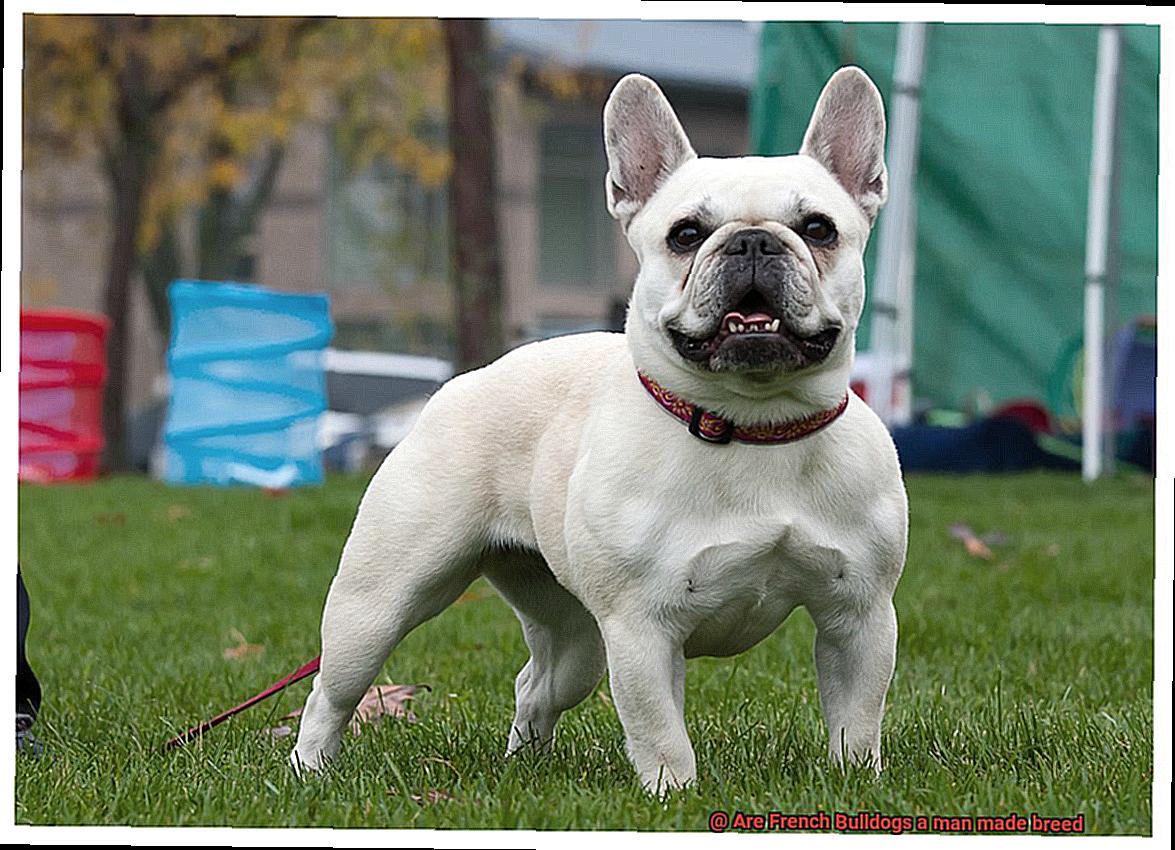
Selecting Suitable Mates:
When selecting mates for their dogs, responsible breeders consider factors such as genetic diversity and compatibility. This helps in reducing the risk of inherited diseases and promotes healthier offspring. By carefully selecting suitable mates, breeders can work towards improving the breed and eliminating genetic disorders through selective breeding practices.
Support and Education:
Responsible breeders do not simply sell puppies and wash their hands of the matter. They provide ongoing support and guidance to puppy buyers, ensuring that they are educated about the specific needs of French Bulldogs. This includes information on proper care, training, and potential health concerns. Responsible breeders also take responsibility for their puppies throughout their lives, offering assistance, advice, and taking back any dog they have bred if the owner is unable to care for it.
Conclusion:
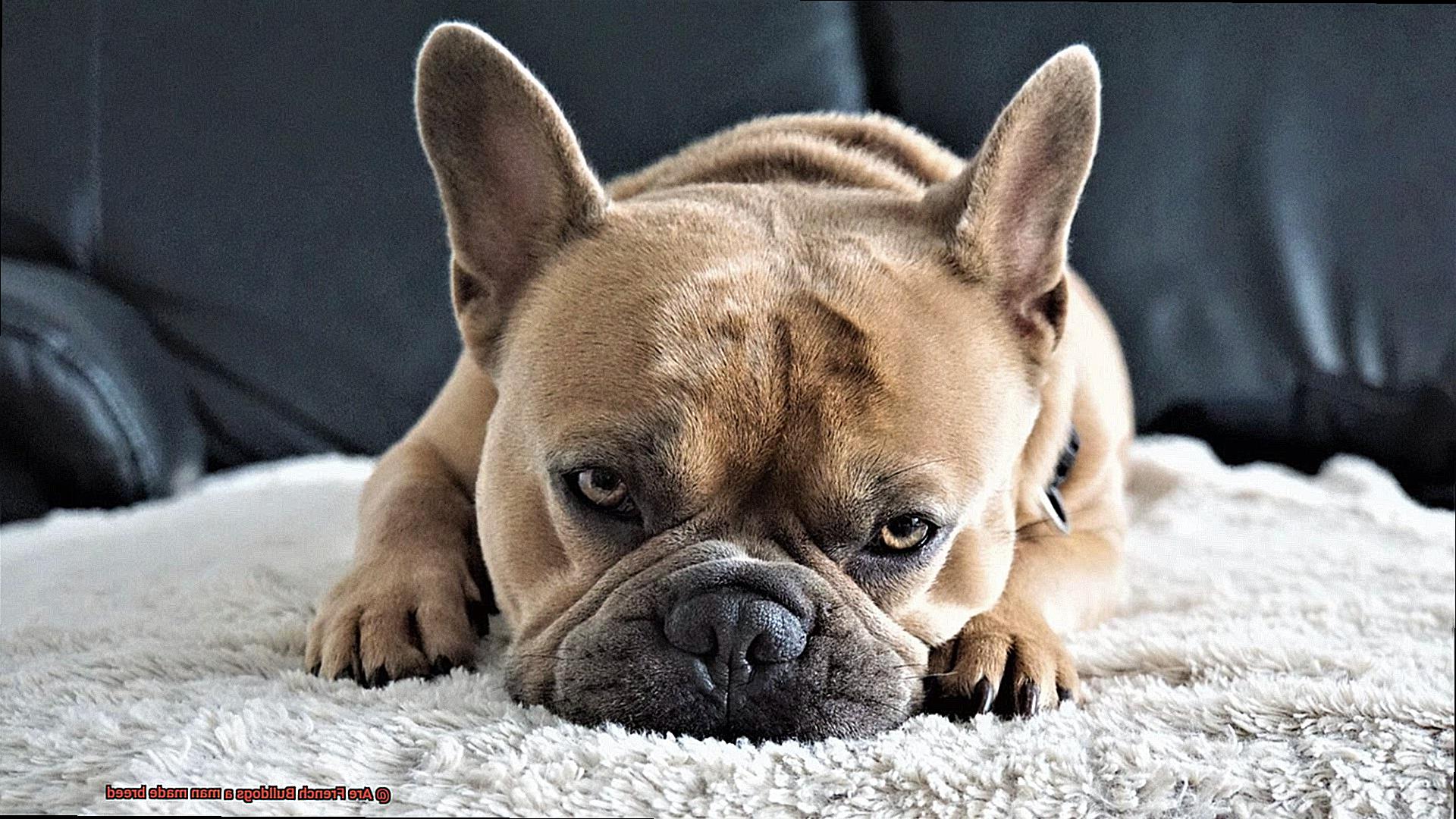
Responsible breeding practices are essential for the health and well-being of French Bulldogs. By prioritizing health screenings, selecting suitable mates, and providing support to puppy buyers, ethical breeders work towards improving the breed and reducing the prevalence of genetic disorders. As potential owners, it is important to seek out responsible breeders who adhere to these practices to ensure that you are bringing home a healthy and happy French Bulldog.
The Popularity of French Bulldogs Around the World
In this blog post, we will explore the factors that have contributed to their popularity and why they are considered one of the most sought-after dog breeds in the world.
Adorable Appearance:
With their bat-like ears, wrinkled faces, and compact bodies, French Bulldogs possess an irresistible charm. Their cute and friendly expressions make them instantly appealing, and it’s no wonder they are often referred to as “clowns in a dog suit.”
Adaptability:
French Bulldogs are known for their easy-going nature and adaptability to different living environments. Whether you live in a small apartment or a spacious house, these dogs can comfortably adjust to your lifestyle. They also get along well with children and other pets, making them a perfect addition to any family.
Low Maintenance Requirements:
Busy individuals or families can find solace in the fact that French Bulldogs require minimal grooming. Their short coat only needs occasional brushing, and they don’t shed excessively. Additionally, they have moderate exercise needs, so a daily walk or playtime is usually sufficient to keep them healthy and happy.
Celebrity Endorsements:
The influence of celebrities cannot be understated when it comes to popularizing French Bulldogs. A-listers like Lady Gaga, Hugh Jackman, and David Beckham proudly show off their furry friends on social media and bring attention to the breed. This star-studded endorsement has undoubtedly contributed to their skyrocketing popularity.
Social Media Sensation:
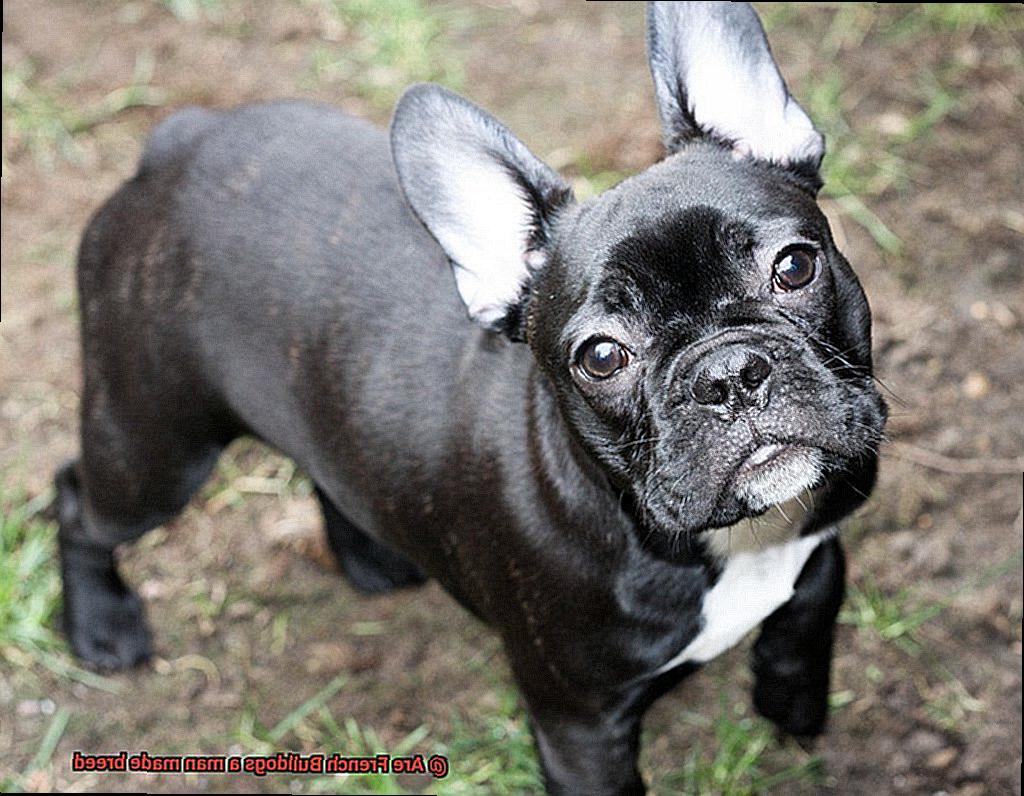
French Bulldogs have taken over social media platforms like Instagram, where countless accounts dedicated to these adorable dogs showcase their daily lives and antics. Such widespread online presence has created a massive fan base and community around French Bulldogs, further fueling their popularity.
Prioritizing Health and Well-being in French Bulldogs
French Bulldogs are beloved for their unique appearance and delightful personalities. However, their popularity has led to certain health concerns that responsible owners must address. In this guide, we will explore the steps you can take to prioritize the health and well-being of your French Bulldog.
Selecting a Reputable Breeder:
- Choose a breeder who prioritizes the health and genetic diversity of their breeding stock.
- Look for breeders who conduct health screenings and tests for common genetic disorders prevalent in French Bulldogs.
- By choosing a responsible breeder, you can minimize the risk of bringing home a puppy with serious health issues.
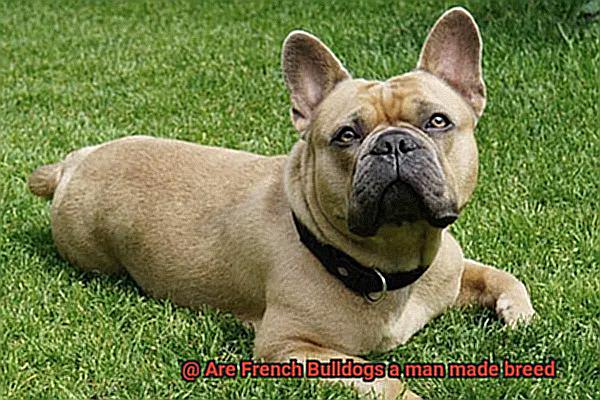
Nutrition and Weight Management:
- Consult with your veterinarian to determine the best diet for your French Bulldog based on their age, activity level, and specific dietary needs.
- Feed them high-quality dog food that meets their nutritional requirements without overfeeding or relying too heavily on treats.
- Obesity is a common problem in French Bulldogs, so maintaining a healthy weight is crucial to prevent joint problems and heart disease.
Regular Exercise:
- While French Bulldogs may not require intense exercise, daily walks and playtime are essential for their physical and mental stimulation.
- Be mindful of their limitations due to their brachycephalic structure, which makes them prone to heat exhaustion and breathing difficulties.
- Exercise them in cooler environments and avoid excessive strenuous activities.
Regular Veterinary Check-ups:
- Schedule regular check-ups with your veterinarian to monitor your French Bulldog’s health.
- Vaccinations, routine screenings, and preventive care measures specific to this breed can be provided by your veterinarian.
Safe Living Environment:
- French Bulldogs are sensitive to extreme temperatures, so ensure their living space is adequately heated in colder months and well-ventilated during warmer periods.
- Pet-proof your home by removing hazardous items such as toxic plants and small objects that can be easily swallowed.
Conclusion
In conclusion, it is abundantly clear that French Bulldogs are indeed a man-made breed.
Through the careful selection and breeding of various dog breeds, humans have created this unique and beloved companion. The history of the French Bulldog’s creation is a testament to human ingenuity and our desire to create a breed that embodies both charm and companionship.
From their origins as ratting dogs in 19th-century France to their current status as one of the most popular breeds worldwide, French Bulldogs are undeniably a product of human intervention.
